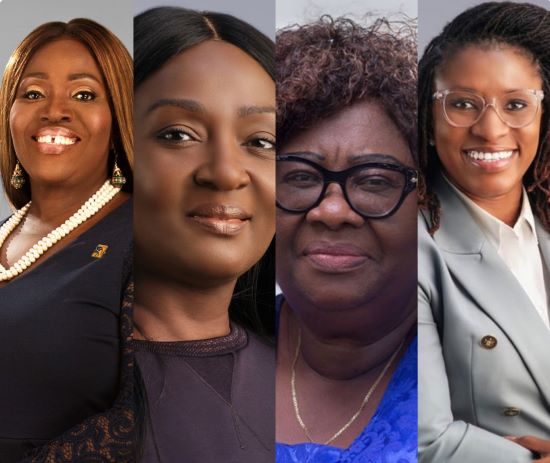Number of women on listed boards in Ghana increase by 12% in 2023
 The Board Diversity Index for 2023, put together by TheBoardroom Africa (TBrA) in collaboration with the Ghana Stock Exchange indicates that Ghana has made remarkable progress in the journey towards gender parity in boardrooms, particularly in companies listed on the Ghana Stock Exchange.
The Board Diversity Index for 2023, put together by TheBoardroom Africa (TBrA) in collaboration with the Ghana Stock Exchange indicates that Ghana has made remarkable progress in the journey towards gender parity in boardrooms, particularly in companies listed on the Ghana Stock Exchange.
Per the report, the number of women in the boardrooms of Ghana-listed companies increased by an impressive 12 percent, from 67 in 2022 to 75 in 2023.
A statement from TheBoardroom Africa said, in Ghana, where women form nearly half of the workforce, the 12 percent growth rate in the gender parity in boardrooms this year is remarkable and encouraging, but also underscores the ongoing need for unwavering efforts to champion gender equality in leadership roles.
The key highlights of the report provide a comprehensive snapshot of gender diversity in the boardrooms of Ghanaian listed companies, the statement said, adding that women Chairs have a significant impact on boardroom diversity.
“Companies led by women as Chairpersons exhibit significantly higher boardroom diversity, with 80% of them having 30% or more women on their boards, while only 26% of companies with male Chairs reach this threshold,” it said.
According to the report, the number of women holding C-suite or Chair positions has increased, as women now account for 14% of Chairs, 12% of CEOs/MDs, 22% of CFOs, and 13% of COOs on Ghana’s listed boards.
However, while the number of Chairs, CFOs, and COOs has increased by 2%, 5%, and 7%, respectively, the number of CEOs/MDs decreased by 1% compared to 2022.
Women Board Directors
Companies with women board directors are also on the rise. A positive trend shows that 89% of listed companies have at least one woman on their board, compared to 88% in the previous year.
Consumer-facing sectors attract more women directors: sectors like advertising & communications, fast-moving consumer goods, and telecommunications stand out, with 100% of their companies having more than 30% women directors.
Notably, the financial services sector boasts the highest number of women board directors in Ghana, with 34 (45%) women directors, the report said.
On the contrary, male-only boards are on the decline, as the proportion of listed companies without any women on their boards decreased from 12% in 2022 to 11% in 2023.
Speaking on the report, Founder and CEO of TheBoardroom Africa, Marcia Ashong said, “While acknowledging the progress made, Ghanaian listed boards possess the potential to drive enduring change by strategically embracing key factors that fuel progress toward gender diversity. These factors include fostering an inclusive culture and securing an unwavering commitment from top leadership to prioritise and champion gender diversity.”
She said the significance of that commitment is further underscored by the 2023 report findings, which highlight the influential role women chairs play in advancing female representation on boards.
“We remain steadfast in our commitment to ongoing collaboration with the Ghana Stock Exchange and other stakeholders to advance this vital agenda,” Marcia Ashong said.
On her part, the Managing Director of the Ghana Stock Exchange, Abena Amoah stated that gender diversity is not just a moral imperative but a catalyst for good governance and enhanced stock performance, adding that the evidence is clear, that companies which prioritise diversity at all levels of leadership make better decisions, drive innovation, and ultimately deliver stronger financial results.
“At the Ghana Stock Exchange, we see gender diversity as a fundamental component of responsible and sustainable business practices, and we are committed to supporting our listed companies in achieving greater diversity and, in turn, greater success,” she said.
The 2023 Ghana Board Diversity Index report provides a comprehensive analysis of the current state of gender diversity in corporate boardrooms, identifies areas for growth and improvement, and serves as a call to action for all stakeholders—businesses, policymakers, and civil society—to accelerate progress toward gender equality in leadership.
